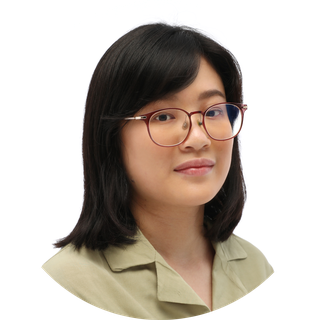Jamus Lim renews call for official poverty line in Singapore; suggests ComCare, Workfare tweaks

WORKERS’ Party Member of Parliament (MP) Jamus Lim on Monday (Apr 17) reiterated the party’s call for Singapore to establish an official poverty line, suggesting that it should “go beyond just crude basic needs of housing, food and clothing”.
Speaking during the first day of debate on the President’s Address, Dr Lim noted that what is conventionally regarded as a basic need rises as a country gets richer. There is also often a distinction between the “absolute minimum” and what is actually needed to participate in a society.
For instance, goods and services such as smartphones and tuition may be regarded as an “unnecessary perk” by some, but many in Singapore struggle to access basic government services or stay afloat in school without them, he added.
“Part of the problem is a disconnect between what the government has claimed to be basic, versus what Singaporeans themselves perceive as necessary for human flourishing,” he said. “Life is not just about making it day to day, but about thriving.”
He called for the establishment of a committee of government representatives, civil society leaders and academic experts to decide what the poverty line should be, and for all government assistance and policies to then be pegged to this threshold.
Besides a poverty line, Dr Lim suggested that the government refine existing assistance schemes such as ComCare and the Workfare Income Supplement (WIS), arguing that they do not sufficiently help those of a lower income.
GET BT IN YOUR INBOX DAILY

Start and end each day with the latest news stories and analyses delivered straight to your inbox.
He said that the approval processes for ComCare can be onerous, and the support duration inadequate. He suggested that the government reduce the need for “burdensome and intrusive pre-approval scrutiny” by obtaining documents directly from public and semi-public agencies.
He noted that the WIS payout is small and often insufficient to meet daily needs, as the majority of it goes to the recipient’s Central Provident Fund account. The scheme is also “blind to the differential needs of parents with children”, since it does not offer higher support for those with dependants.
Lastly, he argued that its requirements exclude some people who need support. The new S$500 minimum monthly income excludes those who work part-time, while the existing age requirement excludes younger workers.
But introducing a single poverty line also has “inherent problems”, said National Trades Union Congress (NTUC) assistant secretary-general Desmond Choo, in response to Dr Lim. It can have an “unintended cliff effect” of excluding those who are financially needy but whose incomes are just above the threshold.
“The line also misses out on the issues that needy families face,” added Choo, such as trying family circumstances, ill health and job readiness.
To Dr Lim’s point on the onerous processes for government schemes, Choo noted that it not possible to shy away from assessments, as they are needed to ensure prudence with public resources and enable the government to “size its assistance to the needy appropriately”.
Nevertheless, he agreed that more can be done to simplify these processes, but stressed that what is more important is ensuring that the schemes available are effective.
Inequality and wealth were a major theme on the first day of debate. People’s Action Party MP Seah Kian Peng asked the government to consider releasing data on the distribution of wealth in Singapore, noting that the Gini coefficient – a standard measure of inequality – only includes wage income.
Seah also called for funding to be set aside for those who do not attend institutes of higher learning. This could be used to provide them with opportunities in the arts and sports, community service, and overseas exposure, he said.
To tackle the problem that intergenerational wealth poses for mobility, Nominated MP Raj Joshua Thomas called for “limited inheritance taxes”. He suggested an inherited wealth tax of 25 per cent for Singaporeans and 35 per cent for foreigners, arguing that inheritance should be treated as a form of income received, as well as stamp duties on inherited properties.
KEYWORDS IN THIS ARTICLE
BT is now on Telegram!
For daily updates on weekdays and specially selected content for the weekend. Subscribe to t.me/BizTimes
Singapore
Beyond giving grants, EnterpriseSG seeks to be more proactive about helping businesses transform
100 years on, SICCI to focus on internationalisation, digitalisation and sustainability
Taylor Swift effect: Singapore hotels’ average room rate grows in March; tourist arrivals reach new post-Covid high
Singapore top recipient of Q1 cross-border investments in Apac: Knight Frank
Shanmugam, Vivian seek aggravated damages from Lee Hsien Yang over post on Ridout Road rentals
Singapore and Canada to enhance science and technology cooperation
